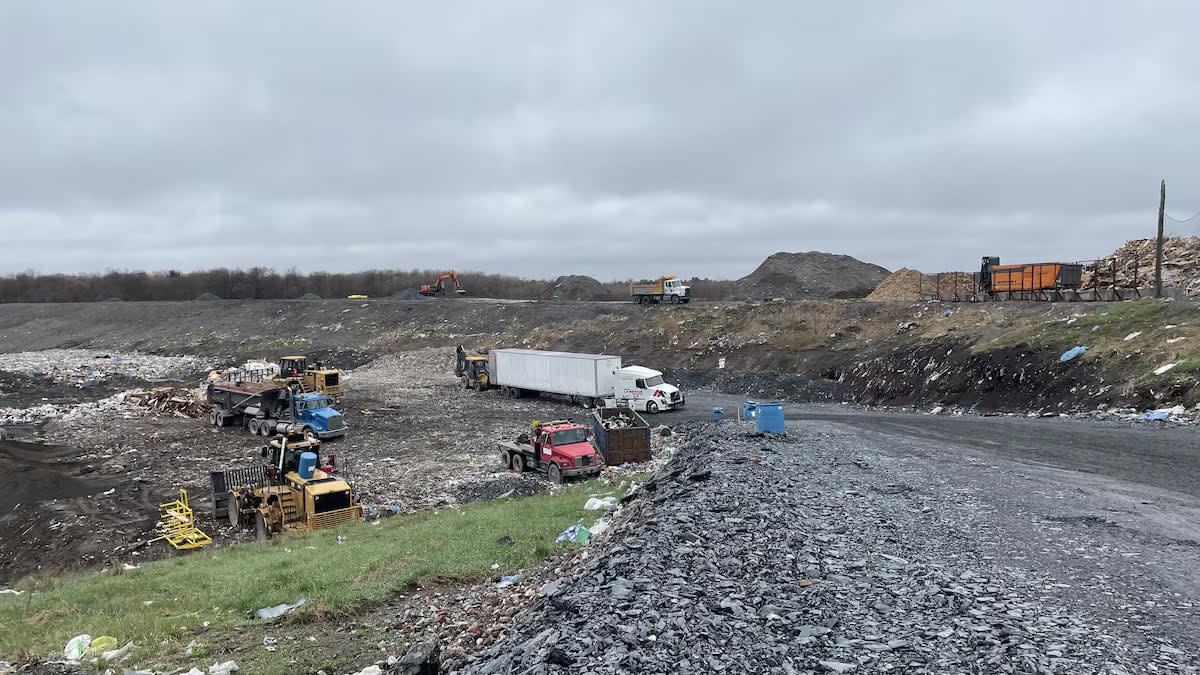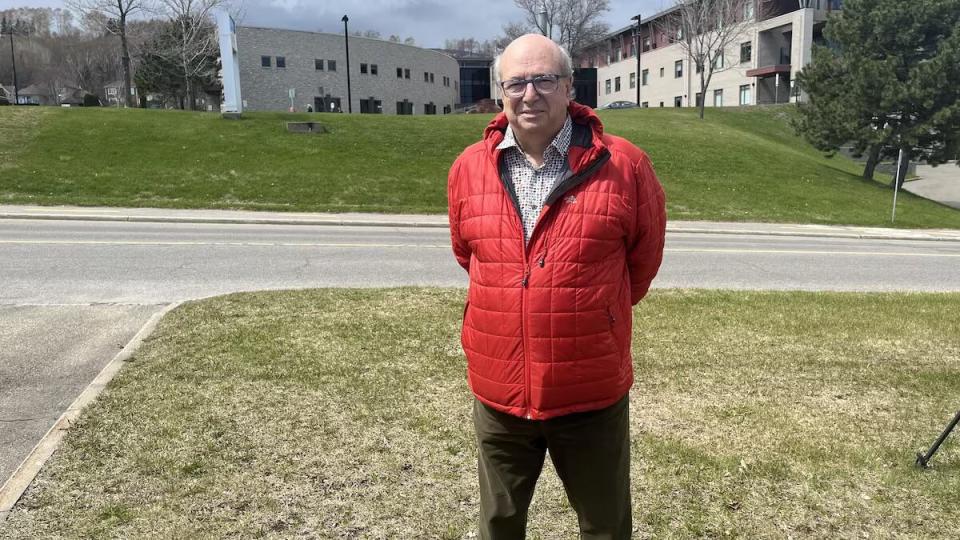Quebec cities urge government to limit 'forever chemicals' in rivers

Quebec municipalities are calling on the province to regulate the presence of so-called "forever chemicals" in drinking water.
Radio-Canada reported last week that several Quebec landfills discharge leachate containing high concentrations of perfluorinated compounds (PFAS) into rivers. Leachate is a contaminated liquid that comes from water passing through buried waste.
Even if the water is filtered before being released into nature, it still has a large amount of PFAS.
8 sites analyzed
The Environment Ministry assessed pollutants at eight technical landfill sites in Quebec. Reports from June 2023 obtained using an access-to-information request show that the concentration of contaminants in discharged treated water is about 2,000 nanograms per litre (ng/l) on average. That's 66 times more than the 30 ng/l ratio recommended by Health Canada for drinking water.
The Saint-Joachim landfill, on Côte-de-Beaupré, discharges leachate into a ditch, which flows into the Ste. Anne River. The ministry's analysis shows the concentration of PFAS after treatment was 1,690 ng/l.
The city of Beaupré, about 40 kilometres east of Quebec City, draws its drinking water from that river. Beaupré Mayor Pierre Renaud said his municipality is tracking the quality of its water.
"We had a study done by the firm Eurofins last year to see what was coming out upstream and downstream of the landfill site, and it turned out that the concentration was less than one millilitre per 1,000 litres of water," Renaud said in an interview with Radio-Canada.

Beaupré Mayor Pierre Renaud says the quality of drinking water is closely monitored in his municipality. (Félix Morrissette Beaulieu/Radio-Canada)
The Quebec government hasn't regulated the presence of PFAS in drinking water. Health Canada recommends 30 ng/l, but the ratio isn't an official standard.
Renaud says he wants that situation to change because it is a public health issue.
'Everything is under control,' Donnacona mayor says
The mayor of Donnacona, Jean-Claude Léveillé, also wants to reassure citizens in his town west of Quebec City about their water quality, telling residents "not to worry about that at all."
"We respect all the criteria of the Environment Ministry. For now, the water quality is perfect," Léveillé said. "Everything is under control."

In February 2021, the city of Beaupré inaugurated its new drinking water filtration plant. (Félix Morrissette Beaulieu/Radio-Canada)
He added that after Radio-Canada's report, the city commissioned a lab to take samples at the water intake of the Jacques-Cartier River, seven kilometres from the landfill site, and inside its filtration plant.
The town of Donnacona gets its drinking water from the Jacques-Cartier River.
Léveillé expects to have the results by June. Like the Beaupré mayor, he wants the government to set a standard to limit the presence of forever chemicals in drinking water.
Widespread use
Known health problems linked to these chemicals involve PFOA and PFOS molecules — synthetic products which are part of the large family of PFAS.
They were used extensively from the 1940s onward mainly due to their anti-stain, non-stick and waterproofing properties.
Various consumer products such as non-stick coatings on cooking utensils, food packaging and flame-retardant foams in fire extinguishers contained them.
The Stockholm Convention, an international treaty to limit the use of "persistent organic pollutants," has banned PFOA and restricted PFOS.
Mathieu Valcke, scientific advisor who specializes in toxicology at Quebec's institute of public health, says that exposure to the two molecules is associated with negative effects on the endocrine system and child development.
For instance, if the mother is exposed, the child may may not grow as quickly as they should, he said.

Mathieu Valcke is a scientific adviser specializing in toxicology at Quebec’s institute of public health. (Radio-Canada)
Some PFAS are also thought to cause a reduced immune response to vaccines, an increase in cholesterol and an increased risk of breast cancer.
Despite being listed in the Stockholm Convention, PFOA and PFOS molecules won't be going away any time soon, Valcke warned.
"There are still some in the environment that date from when they were not banned, but also that come from areas of the world where they are still not banned," he said. "They have time to travel a long distance before degrading. That explains why we still find them today."


